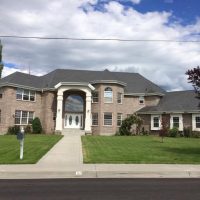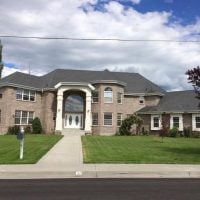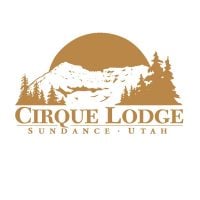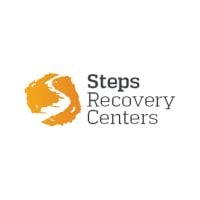Center for Change
Drug Rehab Center in Orem, Utah
Center for Change is an accredited addiction treatment facility located in Orem, UT, offering comprehensive care for individuals struggling with various types of addiction and mental health disorders through a range of inpatient, residential, outpatient, and partial hospitalization programs, including dual diagnosis and detox/aftercare services.
About Center for Change in Utah
The Center for Change is a highly reputable treatment facility located in Orem, Utah. It offers a wide range of services to individuals suffering from drug addiction, alcoholism, dual diagnosis, opioid addiction, substance abuse, eating disorders, and mental health issues. The facility is accredited by the Joint Commission on Accreditation of Healthcare Organizations (JCAHO), holds a state license, and is recognized by LegitScript. These certifications ensure that the center meets rigorous standards for quality care and follows ethical practices. Center for Change accepts private health insurance, making their services accessible to a broader range of individuals seeking treatment.
At the Center for Change, individuals struggling with addiction and substance abuse can find various levels of care to meet their specific needs. These services include dual-diagnosis treatment, inpatient programs, intensive outpatient programs, residential treatment, sober-living/half-way houses, partial-hospitalization, outpatient programs, detoxification, and aftercare support. These comprehensive treatment options provide individuals with a continuum of care, addressing not only the physical aspects of addiction but also the underlying mental health issues that may contribute to substance abuse. By offering a diverse range of services, the Center for Change aims to support individuals on their journey towards recovery and provide them with the necessary tools to achieve lasting sobriety and mental well-being.
Genders
Ages
Modality
Additional
Accreditations
State License

LegitScript

JCAHO
Conditions and Issues Treated
Many people need to recover from substance abuse to live a healthy life. In the end, if you can get through all the steps: detoxifying your body, rehabilitation after some time or when needed (depending on the type), and recovery while also receiving therapy support throughout the process, it can be worth it.
A detoxification center is a common place to start the recovery process from substance abuse. With your body and mind restored, you can continue to heal without the lingering effects of drugs.
Many people who struggle with opioid addiction need to attend specific programs like methadone , Suboxone or Vivitrol clinics.
These types of programs will provide the patient with legal, prescription medications that can help them overcome their cravings for illegal opioids like heroin or fentanyl . If the patient has a chronic condition like Hepatitis C, they must undergo treatment before they can begin taking these medications.
Dual Diagnosis is a specific relationship between two or more disorders that have the same symptoms and can sometimes be treated together. This is used in the treatment planning process when dealing with drug addicts. Dual diagnosis can be viewed as a chronic medical condition that has comorbid psychiatric disorders.
Although addiction and a mental illness may have separate symptoms that are not easy to detect, they often go hand in hand. Many times, drug abuse is a direct result of the mental illness. In other words, treating the addiction will not resolve all of your issues. Unless you also treat the underlying mental illness, you will not be successful in achieving sobriety.
Levels of Care Offered
This center offers a variety of custom treatment tailored to individual recovery. Currently available are Aftercare Support, Detox, Dual-Diagnosis, Inpatient, Intensive Outpatient, Outpatient, Partial-Hospitalization, Residential, Sober-Living / Half-Way, with additional therapies available as listed below.
Detox refers to the progressive elimination from the body of toxins. The detox period depends on the form of addiction, the length of drug abuse, and the state of health. Under the supervision of medical practitioners, MAT detox based in Orem, UT requires the use of medications.
Inpatient treatment is an intensive program that takes place when a patient checks into a rehabilitation facility. The treatment includes detoxification and counseling sessions, which are round the clock. Outpatient treatments are also available, but inpatient care is advised as the first step of rehabilitation.
Intensive rehab ensures the patient stays in a substance-free atmosphere, improving treatment success rates. The patient participates in group therapy for motivation from other patients who have overcome addiction. Family members are also involved in providing emotional support throughout the program.
An intensive outpatient program is usually the first phase of addiction treatment. It provides relief for those who are addicted, but are not ready to commit to an inpatient setting. Typically, the patient lives at home and is able to work or go to school. IOPs consist of a daily 3 to 5-hour program, and there is a required number of hours per week. Most patients go to IOP between 20 and 40 hours per week. The patient attends group counseling and individual therapy throughout the duration of treatment. They also meet daily with their therapist to discuss how it’s going and where they are in the recovery process.
The goal here is to teach patients healthy coping skills, such as stress management and identifying thoughts and behaviors that lead to relapse. The implementation of these skills will be useful as the individual transitions into the next phases of treatment.
An outpatient treatment program is set up to help with alcohol or drug addiction, or a co-occurring disorder. The patient must attend the Utah facility for their therapy and other programs but are able to return home each night. The frequency of mandatory attendance decreases after much of Center for Change‘s program is complete.
Sober Living Homes are an option for those who have completed a treatment program within the past several months. However, it isn’t advisable to use this as a permanent living arrangement because it can lead to a relapse .
The goal of a sober living home is to provide a supportive environment for recovering addicts so they don’t need to return to their previous lifestyles. The homes will not accept residents who are still using drugs or alcohol, and those living in the house must follow a set of rules dictating how they should behave to avoid relapsing.
Residential treatment programs are those that offer housing and meals in addition to substance abuse treatment. Rehab facilities that offer residential treatment allow patients to focus solely on recovery, in an environment totally separate from their lives. Some rehab centers specialize in short-term residential treatment (a few days to a week or two), while others solely provide treatment on a long-term basis (several weeks to months). Some offer both, and tailor treatment to the patient’s individual requirements.
Aftercare is a term that’s used to refer to any sort of continuing care offered for a drug addict who has voluntarily entered a rehabilitation program. This type of care can be provided in several settings, including outpatient therapy sessions after the addict has completed an inpatient program. There are also 12-step support groups, such as Alcoholics Anonymous, which can provide additional help for addicts trying to stay sober.
Therapies & Programs
Individual Therapy is a critical component of addiction recovery. Therapists work with patients to identify the root of their addiction and figure out how to better handle the issues that led to them using drugs. Individual Therapy is the one-on-one session where people meet with their therapist. Individual therapy provides a safe space for people to open up and discuss personal and sensitive topics which they may not feel comfortable discussing in a group setting.
Family therapy will also help families realize that the addiction is not their fault. For many years, people blamed themselves for an addict’s behavior and felt that they had done something wrong. This is not the case. Addiction is a disease, and it can strike anyone, even if their life seems fine from the outside. It can bring a lot of shame to a family when they have an addict in their midst, but if everyone is open and honest with each other, then they can help everyone stay in recovery.
Group Therapy is utilized by drug treatment centers like Center for Change to provide the recovering drug addict with a platform to talk about their feelings and experiences. It also provides for an opportunity to learn from other addicts who have successfully overcome their addiction.
Group Therapy is employed in lectures, seminars, or discussion groups (the latter two are typically conducted as “therapy groups”). It is recommended that all group members be recovering addicts for this type of therapy to work (though it does not exclude others with lived experience).
Dialectical Behavior Therapy (DBT) is used by drug treatment centers across the United States to help drug addicts become sober. DBT combines traditional behavioral treatments with elements from DBT, including dialectics, distress tolerance, and interlocking issues. It is commonly used to treat Borderline Personality Disorder (BPD) along with substance abuse disorders. The four DBT modules are mindfulness, interpersonal effectiveness, emotion regulation, and distress tolerance.
Nutrition therapy has been used to help drug addicts for decades. Many early reports on addiction treatment indicate that some patients recovered from the “satisfying power of food”. For years, this phenomenon has been utilized as a treatment modality in eating disorders for adults, adolescents, and children. Specific nutrients have been identified that influence neurotransmitters associated with reward pathways of the brain.
Studies have shown that carbohydrate loading with complex carbohydrates to elevate serotonin levels was effective in treating bulimia nervosa. This approach prompted researchers to explore the use of this type of nutritional intervention in other disorders.
Nicotine replacement therapy treats nicotine addiction using external sources of nicotine, such as patches or gum to substitute for nicotine. This allows people trying to quit smoking to get their desired dose of nicotine without actually having to smoke cigarettes. The idea behind NRT is that by providing smokers with nicotine in forms that are not cigarettes, they may be more likely to quit smoking.
NRT has been available for many years now, and there is a wealth of evidence that shows that it helps people trying to quit smoking. There are several different types of NRT devices on the market now. Patients interested in quitting smoking should talk to their doctors about the best kind of NRT for them.
Patient Experience
Creative Arts
This type of therapy can help addicts manage anxiety, stress, and other negative feelings. It typically involves the use of art materials to express thoughts and emotions that might otherwise be difficult for an addict to discuss with another person.
During these types of sessions at Center for Change, addicts will typically work with a therapist or support group leader to create pieces of art. For instance, they might draw pictures, paint, sculpt, and so on. During the process, addicts are encouraged to talk about what led them to substance abuse in the first place.
Experiential Therapy at Center for Change
Experiential therapy is another form of treatment that helps addicts overcome their addiction. This type of service typically involves hands-on activities with the focus on physical experiences instead of emotions or beliefs.
Some examples include art therapy, equine therapy and music therapy. Each of these forms of experiential therapy can provide unique ways for addicts to channel their feelings and work through their demons. This type of therapy also allows addicts to develop meaningful emotional connections with others, which can prevent them from resorting to relapse as a coping mechanism.
Payment Options Accepted
For specific insurance or payment methods please contact us.
Is your insurance accepted?
Ask an expert, call (888) 674-0062
Additional Details
Specifics, location, and helpful extra information.
Orem, Utah 84057 Phone Number(888) 224-8250 Meta DetailsUpdated November 25, 2023
Staff Verified
Is Center for Change a LegitScript Verified Treatment Facility?
According to our most recent records, we have found this center to be LegitScript verified.
Center for Change Patient Reviews
There are no reviews yet. Be the first one to write one.
Orem, Utah Addiction Information
More than 500 people in Utah die each year from the effects of drug abuse and/or addiction. Substance abuse rates in Utah have seen an upward trend for a variety of drugs. Opioids are involved in almost 70% of all drug-related deaths in the state, annually. In 2014, Utah officials created a Good Samaritan Law to protect drug users who report possible overdoses from being prosecuted themselves.
The drug addiction and abuse problem in Orem, UT, is growing at an alarming rate. The number of people addicted to drugs is constantly growing. In 2014, substance use disorders resulted in 76 deaths in Utah. In recent times, Orem's admissions to substance use treatment facilities increased by 53%, from 3,066 to 4,527. There are many types of drug rehab facilities, including detox facilities, long-term rehabs, and outpatient centers.
Treatment in Nearby Cities
- Syracuse, UT (55.8 mi.)
- Escalante, UT (177.1 mi.)
- Brigham City, UT (83.2 mi.)
- Alpine, UT (9.3 mi.)
- Providence, UT (95.4 mi.)
Centers near Center for Change
The facility name, logo and brand are the property and registered trademarks of Center for Change, and are being used for identification and informational purposes only. Use of these names, logos and brands shall not imply endorsement. RehabNow.org is not affiliated with or sponsored by Center for Change.











